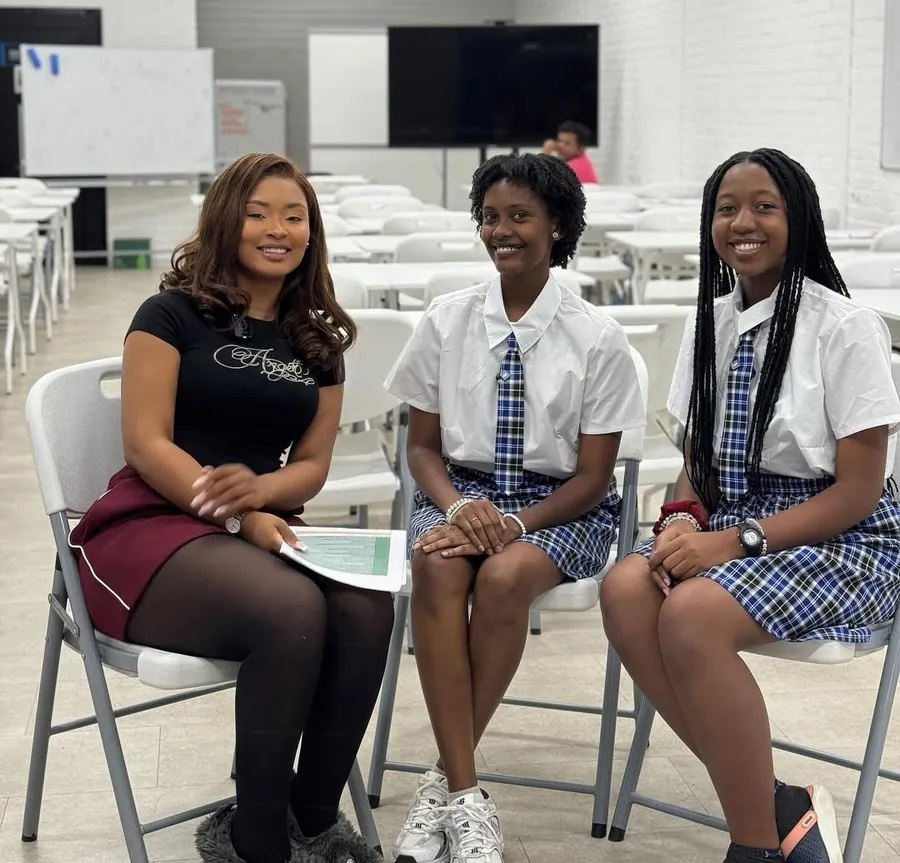A spate of videos targeting young women for jobs in Russia recently caused an uproar in South Africa. At least 10 social media influencers began posting photos and videos in August as part of a campaign to promote the Alabuga Start program in central Russia’s Tatarstan Republic.
The videos went viral, but not for their intended purpose.
The influencers faced a swift backlash and a government investigation when multiple media reports revealed well-documented evidence that Alabuga Start has tricked African women into working in a military drone assembly plant to support Russia’s war on Ukraine.
“We are extremely worried,” Clayson Monyela, head of public diplomacy at South Africa’s Department of International Relations and Cooperation, said in an August 25 interview on Radio 702. “Human trafficking syndicates are luring young people into all sorts of illegal activities under slave-like conditions.”
Monyela said his ministry “is actively investigating reports of foreign programs that recruit South Africans under false pretenses,” while South Africa’s foreign affairs spokesperson Chrispin Phiri also confirmed to Agence France-Presse that the matter was “under investigation.”
Struggling in its war against Ukraine, Russia continues to deal with a severe labor shortage exacerbated by its mobilization of hundreds of thousands of men as soldiers, as well as a mass exodus of dissenters. The Kremlin has resorted to job scams designed to lure or trick Africans into fighting for the Russian Army and assembling drones in factories like Alabuga.
The aim of Alabuga Start is to support Russia’s drone production program, the Global Initiative Against Transnational Organized Crime said in a May report. “Potential recruits are enticed to participate under false pretenses regarding the nature of the work, the working conditions and opportunities for education,” the report said.
About 200 African women reportedly have been employed in the Alabuga Special Economic Zone, working with Russian vocational students, some of whom were as young as 15. Some African women have said they only discovered the true nature of the work after arriving, having been told they would have hospitality jobs as part of a work-study program.
The women reportedly have experienced numerous abuses and labor rights violations, including long work hours, lower-than-promised wages, constant surveillance, and restrictions on their movement and communication. Health and safety breaches also have been reported, including working with chemicals that caused skin injuries.
Monyela said his ministry helped facilitate the return of one South African woman who contacted the embassy in Moscow “after realizing what was promised wasn’t true.” In addition to going on the radio, he posted warnings across social media, urging young people to contact his department about anything that “looks too good to be true.”
“Influencers have been mobilized to promote these opportunities that look very good on paper,” he said on Radio 702.
Cyan Boujee, a South African DJ whose real name is Honour Zuma, was one of the influencers contracted to create a series of videos touring the Alabuga Special Economic Zone and interviewing African women who work there. She considers herself another victim of Russia’s recruitment and propaganda campaigns.
“I lost a lot,” she said during a September 10 podcast appearance. “I lost some dignity. I have a lot of anxiety. I lost my TikTok account and a number of brands. This is a huge learning curve for me. I’m sorry for not doing my homework, and I hope that everyone else learns from this situation.”
Zuma has continued to post videos about her experience in Russia and the aftermath. In one, she said that she deleted the original video on TikTok before her account with nearly 2 million followers was shut down by the service. She said she has not been paid for her work and doesn’t expect to because she refuses to post the other videos she had agreed to share.
She also said she had doubts and suspicions during the visit to Alabuga. She said she interviewed a girl who explained that she was forced to say that she had been treated well.
“That girl cried,” Zuma said in an Instagram video to her 902,000 followers. “I was in disbelief. When I interviewed the kids, most of them were not happy, especially with the answers they had to give on camera.”
South Africa’s ministry for women and youth expressed “grave concern” over the targeting of young South African women for employment opportunities in Russia.
“Young people are urged to exercise extreme caution when engaging with unsolicited offers for international employment, particularly those distributed via social media and other online platforms,” spokesperson Cassius Selala said.

